Astrophytum asterias Superkabuto cactus live plant
₹750.00
Out of stock
Email when stock available
EAch plant is different patterns photo is just for reference pic you can ask for pic before placing order else random superkabuto plant will be sent
Astrophytum asterias Superkabuto Description: Astrophytum asterias is a classic asterias with very fine petals, cut into shreds. The flowers look quite different for an “Astro” but nice and come in two colours: yellow (classic) and red . The latter (discovered by T. Sato) is known as Astrophytum asterias . Red blooms, are very uncharacteristic of this genus and a rarity in collections. This selected cultivars bears beautiful flowers shaded in dark pinkish-red, orange-red or purple wine-red.
Roots: The underground body is fleshy, turnip-like, with fine diffuse roots.
Stem: Non-branched, much depressed, disc-shaped to low dome-shaped, grey-green to dull green (unless stressed), mature plants 2-7 cm tall, 5-16 cm broad, dotted with numerous minuscule tufts of bright white wool (hairy scales). These hairy scales are usually loose, sprinkled over the stem in irregular patterns, sometimes arched around the areoles or on line. Cultivated plants possess sometimes very dense and big hairy scales. The short white wool on surface, said to substitute for lack of shade from spines. There are also completely flake free pure green specimens.
Ribs: The stem is typically divided by very narrow but distinct vertical grooves into 8 broad ribs. The ribs are very low, almost flat on top, forming triangular sections with no cross-grooves. The normal rib number eight is very stable in wild specimens, independent of the age of the plant, but in cultivation selected cultivars and hybrids can have from 4 to 13 ribs.
Areoles: Round, prominent, 3-12 mm in diameters, forming a line up to the centre of each rib, felted to hairy, white, creamy, dirty-yellow till straw-coloured, then grey. Normally 3 to 10 mm apart, but sometime very close one to each other in cultivated plants.
Spines: Not any. Only seedlings show some rudimentary spines within the first weeks and months.
Flowers: Apical, diurnal, radial, 3-5 cm long, 5-7(-9) cm in diameter opening widely, shaded in dark pinkish-red, orange-red or purple wine-red. Ovary and tube very short, densely covered with thin, bristle-like, black tipped scales and with cobwebby wool in axils. Petals long, very fine, shred-like, from narrow purple-red bases; upper parts clear pink, orange or red, edges entire, tips entire and slightly pointed. Filaments orange at bases, yellow above, anthers and pollen yellow. Style yellowish with 10-12 yellowish-green stigma lobes.
Blooming season: It may flower at any time during the warmer months of the year if adequate water is provided and each flower lasts for one or two days only.
Fruits: Oval to round, about 1,5-2 cm long, green, pinkish or greyish-red densely covered with spines and dull-white wool, becoming dry and finally breaking off at or near base (not opening above the base).
Seeds: Black or dark brown, glossy, bowl to helmet shaped about 2 mm long, 3 mm broad.
Be the first to review “Astrophytum asterias Superkabuto cactus live plant” Cancel reply
You must be logged in to post a review.



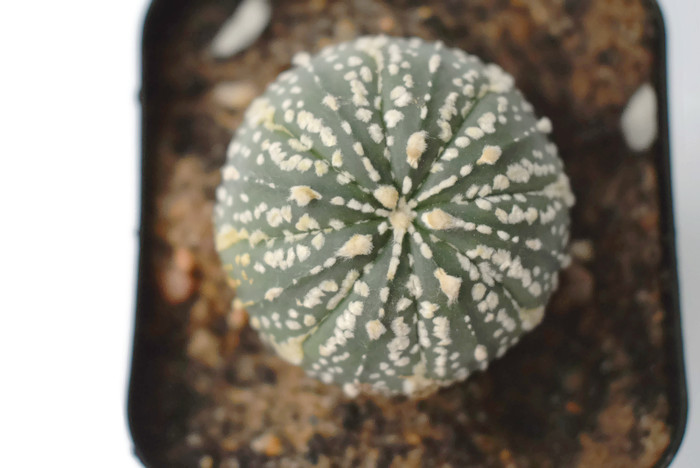
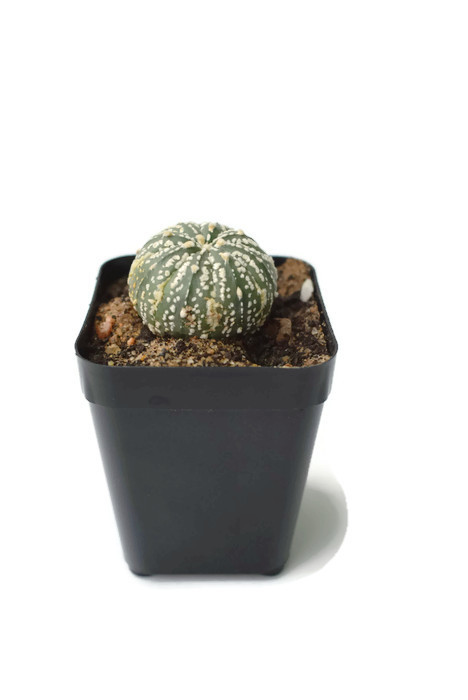
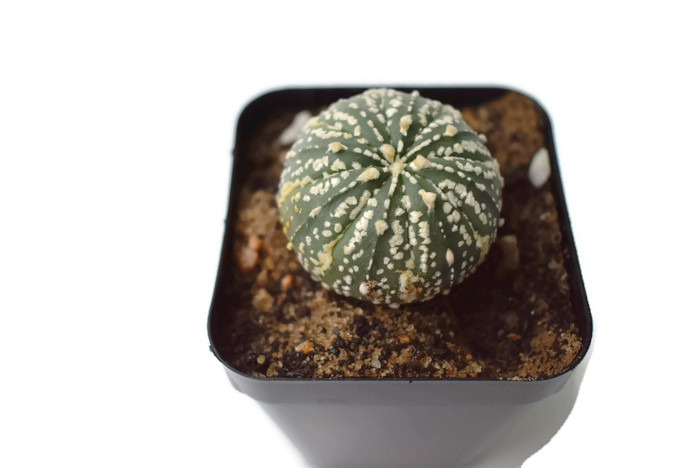
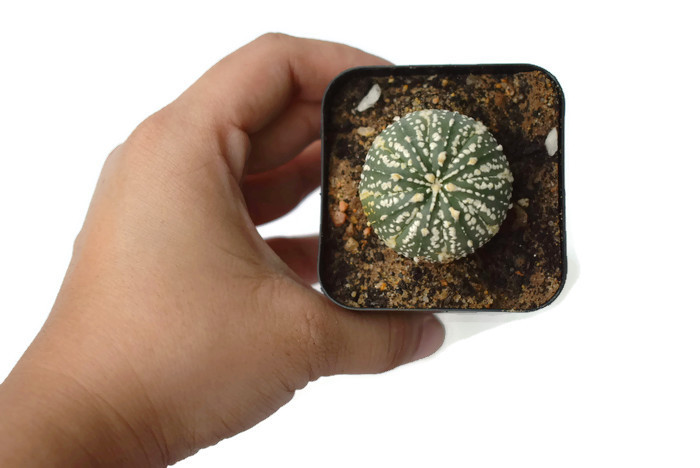
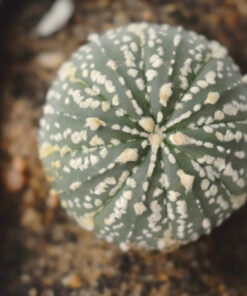



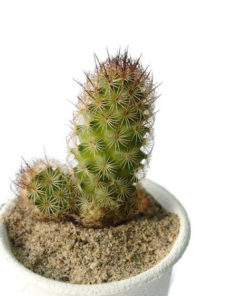

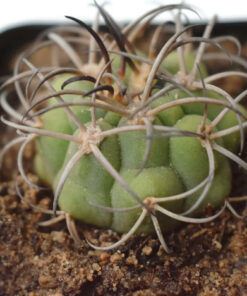

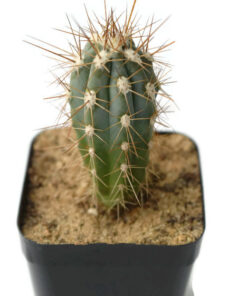

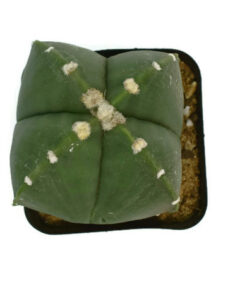

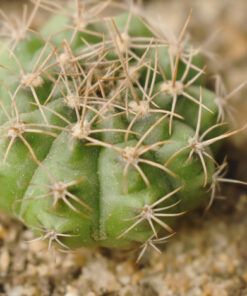

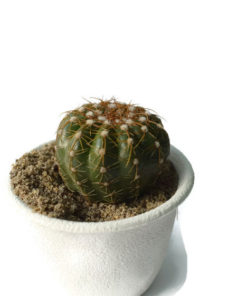

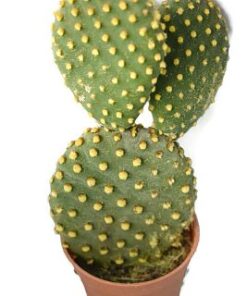
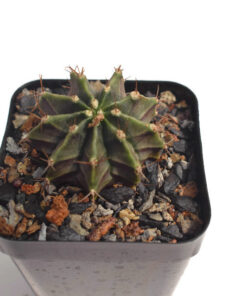

Reviews
There are no reviews yet.